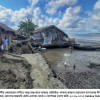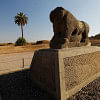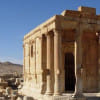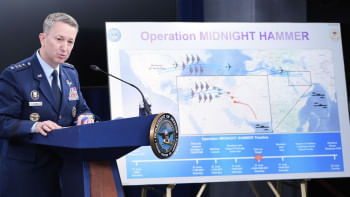Empowering Youth, Saving Heritage

From October 5 to 13, eight young volunteers spent their days and nights learning about Bangladesh's tradition and culture, all the while practicing methods to conserve a UNESCO World Heritage Site – the ruins of the Buddhist Vihara at Paharpur.
As part of the World Heritage Volunteer Camp 2018, Education & Cultural Society (ECS) was selected as the host organisation for the second year in a row, to welcome and organise a learning experience for selected volunteers. Kazi Nasrin Siddiqa, President & CEO, ECS, and her team arranged a wonderful project to raise awareness among the visitors and local community about the conservation of Paharpur. The focus of the project was to involve, empower, and develop youth's capacity to lead the campaign for sustainable conservation.
This year's volunteers arrived bringing with them an undying passion to learn about new cultures and immersing themselves in conservation practices. Kazi Naushin Tabassum, Rakhia Sultana, Niloy Debnath and Ariful Haque from Bangladesh were joined by Felicitas Hartig from Austria, Micol Boschetti from Italy, Francis Gallardo Enrique from the Philippines, and Nguyen Thi Viet Linh from Vietnam.
"We wanted to know about Bangladesh and its people," admitted Micol. "It was the vibrant culture and stories that attracted us. And upon arriving, I can say that it was the right choice."
Over the course of nine days, the volunteers lived close to the heritage site; they lived like Bangladeshis. "The residents of the local village warmly welcomed us, and it felt like home from the very first day," added Naushin. Every morning, the team met for yoga classes at the vihara grounds. Each night a member had to showcase their country, donning traditional dresses – a cultural exchange practice that led to them learning about countries other than the host.
Rakhia had previously worked as a volunteer, this year her role was of the coordinator. About the team activities, she explained, "We spent our time working as one close unit, to raise awareness about the vihara's conservation. We kept the area clean and in good condition for visitors, went to schools and taught children about its cultural significance, learned about its impact on the livelihoods from local authorities, and experienced deep-rooted traditions from nearby villages."

During their time at the Buddhist vihara, the team realised how important the heritage site is to the people living nearby. Not only because of its archaeological and historical value, but many lives are interconnected due to its presence and well-being.
"The youth can play a major role in leading the conversation to help save these historical monuments. We travel more and have a formidable presence on social media. Once the youth take matters into their own hands, more people will join in. A chain effect is thereby created," commented Linh, who also shared memories of teaching her mother tongue to other volunteers, and learning Bangla in return.
Francis chimed in. "This experience made us think about important sites back home that are at risk. Being hands on about campaigning for the conservation of the Buddhist vihara has people talking about it. If we, who aren't Bangladeshis, care so much about their local heritage, imagine how much they should be worried about it."
All in all, this project is more just a conservation drive. Felicitas sees it as a tool for not only youth but women empowerment. She said, "It's not easy for a young woman to be travelling across the world, but coming to Bangladesh, working for a project led and managed by women adds extra value to my experience. The local authority has observed our dedication and promised to join forces, and hopefully this is the start of something better."
The entire team of organisers and volunteers would like to extend their gratitude to Khaled Bhuyian Millat who had been supporting this programme from UK for the last two years financially and morally.
The volunteer camp was supported by Department of Archaeology, Ministry of Cultural Affairs; Bangladesh National Commission for UNESCO, iEARN-BD, Provat Ferry, and Volunteer for Bangladesh. SHOUT was the Youth Engagement Partner.

 For all latest news, follow The Daily Star's Google News channel.
For all latest news, follow The Daily Star's Google News channel. 








Comments